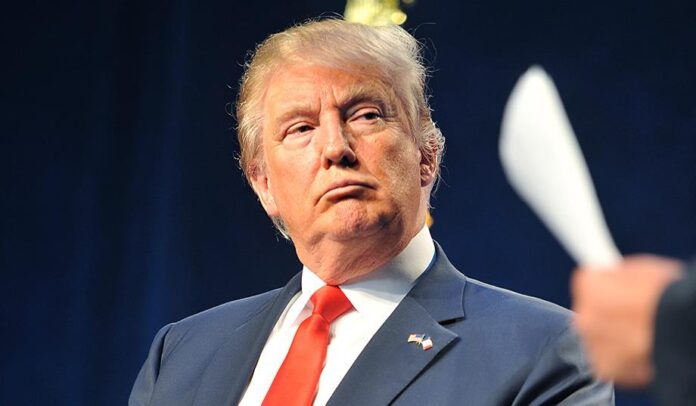During a speech in Portland, Maine last August 4, Republican presidential candidate Donald Trump included the Philippines in a sweeping statement about “terrorist nations”.
“We’re letting people come in from terrorist nations that shouldn’t be allowed because you can’t vet them,” Trump said. “There’s no way of vetting them. You have no idea who they are. This could be the great Trojan horse of all time.”
He then named these countries as Afghanistan, Iraq, Morocco, Pakistan, Somalia, Syria, Uzbekistan, Yemen and the Philippines.
Trump said: “We’re dealing with animals.”
Responding to Trump, Philippine congressman Joey Salceda filed a bill seeking to ban Trump from entering the Philippines.
The lawmaker from the province of Albay described Trump in his bill as “inimical to the national interest”.
“There is no feasible basis or reasonable justification to the wholesale labeling of Filipinos as coming from a ‘terrorist state’ or that they will be a Trojan horse,” Salceda wrote in the bill.
In 2014, 34,591 people immigrated from the Philippines to the U.S., the most recent year for which statistics are available, according to the U.S. Department of Homeland Security.
Salceda’s call for a ban came in response to “a long line of pronouncements where [Trump] has demonstrated an unrepentantly negative, dysfunctionally nativist, aggressively adversarial attitude towards immigrants in the USA”.
The U.S. presidential candidate cited a case in which “an immigrant from Afghanistan who later applied for and received U.S. citizenship [and] an illegal permanent resident from the Philippines were convicted for plotting to join Al Qaeda and the Taliban in order to kill as many Americans as possible”.
He was referring to the case of two Southern California men who were convicted in 2014 of conspiring to provide material support to terrorists and conspiring to kill officers and employees of the U.S. government.
Sohiel Omar Kabir, an Afghan-born U.S. citizen, and Ralph Deleon, a legal permanent resident and citizen of the Philippines, were initially arrested two years earlier as the result of an FBI undercover operation, the news station reported.
Trump had called immigrants the U.S.’ “Trojan horse” at least once before. “This could be a better, bigger more horrible version than the legendary Trojan horse ever was,” Trump said at a rally in St. Anselm College in New Hampshire in June.
The Philippines is not the first country where politicians have called for banning Trump.
Britain’s Parliament held a debate in January to discuss whether or not to ban Trump from entering the country after Trump proposed banning Muslims from entering the U.S.
In the same month, a German lawmaker proposed a similar ban. Dieter Janecek, a member of the left- wing Green Party, said Trump’s “rants of hate against minorities and refugees could constitute the criminal offense of incitement of hatred,” according to CNBC.
When it comes to Trump’s real estate deals, Philippine Presidential Commission Office Secretary Martin Andanar noted in a statement, he seems to feel more favorably about the island nation.
“In fact, Mr. Trump has even professed his love for the Philippines during the launch of his 57-story luxury apartment in Makati,” the statement read.
California Assembly member Rob Bonta — the first and only Fil-Am elected to the state Legislature — echoed President Barack Barack Obama’s sentiment that Trump is “unfit to serve as president.”
“Trump’s call to restrict immigration and tourism from the Philippines doesn’t represent the America my mother believed in when she made the journey to this country decades ago. It doesn’t represent the America that my 1.5 million Filipino-American brothers and sisters in California know. And it’s definitely not the America I want my children to grow up in,” Bonta said in a statement.
Bonta has also put out a call to action on social media to ban Trump, urging Fil-Ams to share videos and pictures with a sign that says “#BawalSiTrump”.
Photo by Steve Pope/ Getty



